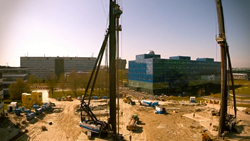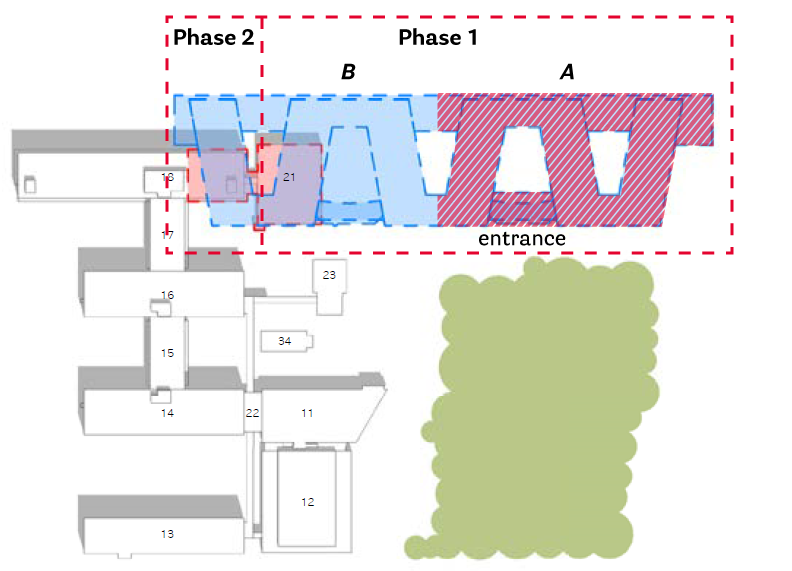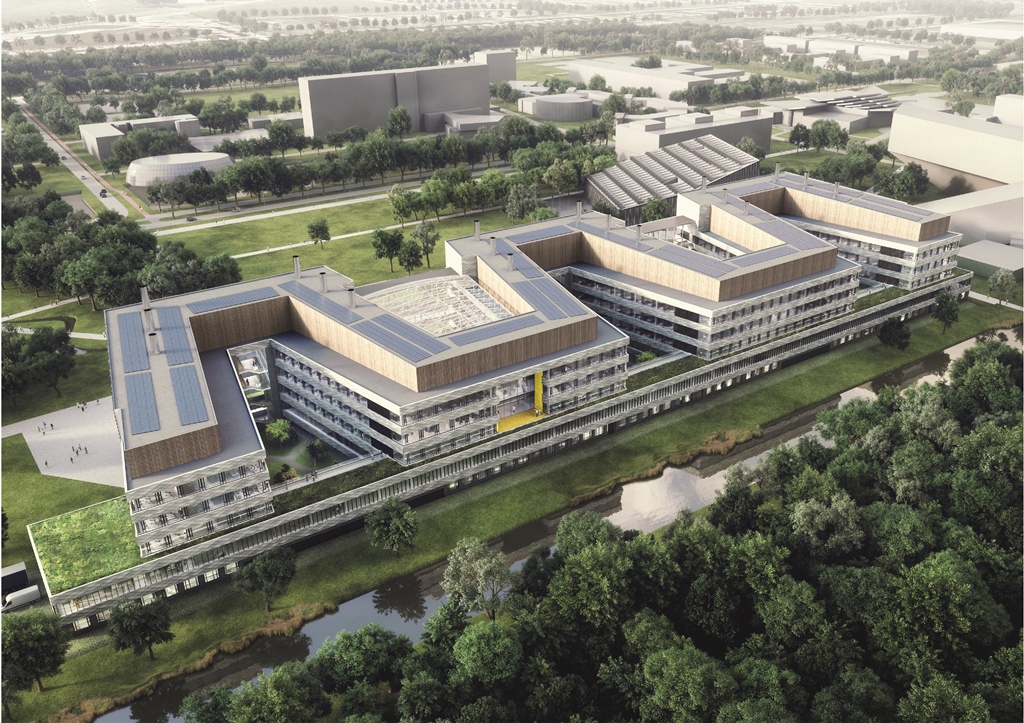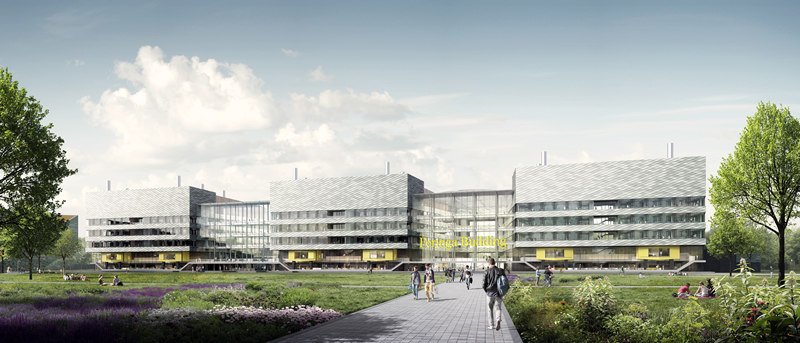Eerste bouwfase Feringa Building op Zernike Campus vanaf 1 juli
Op 1 juli 2019 start aannemer Ballast Nedam met de eerste fase van de bouw van de nieuwe Feringa Building voor de Faculty of Science and Engineering (FSE) van de Rijksuniversiteit Groningen. De Feringa Building op de Zernike Campus krijgt de vorm van drie aaneengeschakelde V-vleugels en huisvest straks ongeveer 1.400 studenten en 850 medewerkers.

Begin juli wordt gestart met de fundering. Doordat de werkzaamheden vlak naast het huidige gebouw plaatsvinden, zal dit op een trillings- en geluidsarme manier gebeuren. Het aanleggen van de funderingspalen bestaat uit het boren van gaten in de grond, die worden voorzien van wapening en volgestort met beton. Deze manier levert, in tegenstelling tot heipalen, geen zware geluidsoverlast. Wel betekent het meer betonwagens.
In totaal worden circa 2.000 betonnen schroefpalen gemaakt voor de fundering van de Feringa Building. Er wordt gestart aan de zuidkant van het bouwterrein.

Bouwplanning in fases
De nieuwbouw vindt gefaseerd plaats (zie afbeelding). Fase 1A is medio 2021 geheel gereed, zodat de eerste onderzoeksgroepen van de faculteit hun intrek kunnen nemen in de Feringa Building. Daarna wordt fase 1B afgebouwd en kunnen gebouwdelen 17 en 18 van Nijenborgh 4 worden gesloopt om plaats te maken voor Fase 2. Deze zal begin 2022 starten en in de zomer van 2023 klaar zijn.


Meer nieuws
-
17 februari 2026
De lange zoektocht naar nieuwe fysica
-
10 februari 2026
Waarom slechts een klein aantal planeten geschikt is voor leven
